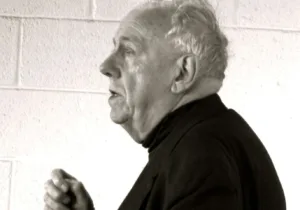The Roman Catholic Doctrine of Subsidiarity Needs a Realistic View of Man’s Nature
“Subsidiarity is a principled tendency toward solving problems at the local level,” said philosopher Fred Crosson, “and empowering individuals, families and voluntary associations to act more efficaciously in their own lives.” Of all the dogmas in Roman Catholic Social Teaching, subsidiarity seems to be the most intuitively true. Of course, problems are best solved by those nearest the situation at hand, not by bureaucrats thousands of miles away from the problem. And yet, in our increasingly regimented, technocratic, Statist society, subsidiarity isn’t common and doesn’t makes sense to many people. The history of the idea sheds light on why this is the case.
When tracing the origins of subsidiarity, many start with Pope Pius XI’s Quadragesimo Anno (1931), or Pope Leo XIII’s earlier Rerum Novarum (1891). But the trajectory of the church’s teaching on subsidiarity was set in the writings of Luigi Taparelli, SJ, (1793-1862). Key to understanding Taparelli is his revolutionary context. Against the backdrop of the French Revolution of 1789, Luigi Taparelli balked at the Modern political theory flowing from the pen of Jean-Jacques Rousseau and his followers.
For Rousseau, an individual is born free, but finds himself in chains. An individual can be whatever he wishes to be; that which holds one back is mere cultural constraints. As soon as one is able to wrestle himself free from such constraints, he can truly know freedom. Again, the backdrop of the French Revolution is key to understanding Taparelli’s critique. Taparelli sees a modern world that has disdain for the heritage that built it up. It was seeking to build a society on this novel view of man, a view Taparelli saw as suspect. Contrary to Rousseau, Taparelli says man is not born free; he’s born bound to his nature.
By implication, this means that men and women are born in relation to their fellows. This makes man doubly bound, to himself and to the other. Anthropology, in his reckoning, was not something to be invented, but something to be discovered. This fixed anthropology was a direct result of Taparelli’s devotion to Thomas Aquinas.
In Thomas, Taparelli found an anthropology sturdy enough to withstand the weight of a humane sociology. That is, Thomas’ concept of natural law birthed a politic that was both coherent and constructive. If man is born in a web of allegiances, he is thus obliged to give the other his due. A weaker person can’t be trampled upon simply because he can be. No, each man has certain natural rights which are directly derivative from his nature. Each is owed, each is indebted, thus each is bound to his self and his neighbor. In his wonderful book on Taparelli, Thomas Behr puts it thusly:
“No person has a right to define the universe and the meaning of life as he wishes: there is a finite range or rational possibilities, from the strictly materialist to the strictly spiritualist, and one can dare to say that the effects of any given set of metaphysical/anthropological/ethical beliefs are subject to pragmatic empirical evaluation.”
One can see the ways in which such theological reasoning ran afoul of the revolutionary spirit abroad in France. Modernity was being birthed, and the old chains of church, family, and nature were giving way to a new order. Taparelli saw modern political thought as legitimizing Leviathan. By taking away nature, it took away rights, which took away the individual’s power to fight the intruding State.
In his magnum opus, Saggio Teoretico, Taparelli coins the term “social justice.” In his mind, social justice is the natural outflow of recognizing that man is made in God’s image. It’s the idea that we owe one another respect even as we preserve “personal and associational liberty.” That is, man’s freedom and man’s dignity have to be balanced.
One cannot be so free as to withhold the due respect another deserves. But neither can one be bound to give to another that which is beyond their due, thus becoming enslaved. Rights, said differently, aren’t just about freedom or responsibility, but the freedom that responsibility brings. This is the developing context for Taparelli’s understanding of subsidiarity. How is one to live out this “indebtedness” that social justice applies? It has to be at the human level. Because this indebtedness is personal, it must be expressed near actual persons. Solutions aren’t to be imposed from on high, but developed from the bottom up.
Taparelli’s political view made no sense in light of the anthropological assumptions of his time. It was his Thomistic, Christian anthropology that gave birth to his political theory. Any effort to recover the sort of civil society in which subsidiarity can take place that does not first ground itself in the Judeo Christian understanding of human nature is bound to fail. This was the conclusion Taparelli drew in his revolutionary day, and it is the one we should draw in ours.
Like Taparelli, we are currently living through a cultural revolution. The bedrock assumptions of human nature we have taken for granted are being questioned and rejected at every turn. This anthropological crisis is leading to cultural decadence and political upheaval. In this milieu, subsidiarity is not “common sense.” But the history of subsidiarity offers us hope.
When the political fruit of bad ideology is most rancid, the church should offer an attractive alternative. We, like Taparelli, must defend the Christian view of man. Arguing for Christian political principles like subsidiarity is good, but it is insufficient if we cannot persuade our fellow citizens of a Christian anthropology.






 Sponsor a student for Christianity & National Security 2024
Sponsor a student for Christianity & National Security 2024